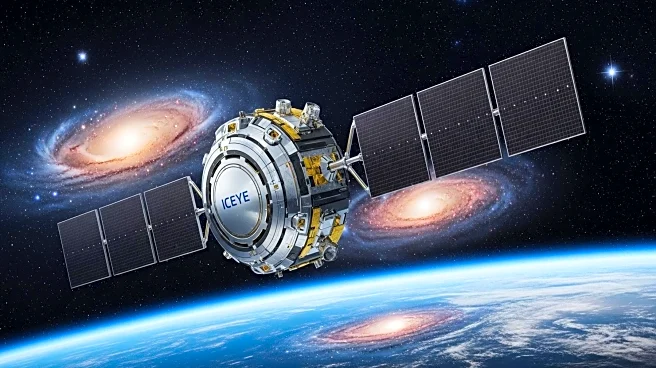What is the story about?
What's Happening?
ICEYE, a Finnish Earth observation company, has appointed Yasuhiro Tsukahara as the new CEO of its Japanese operations. Tsukahara, formerly the COO of Japan Space Imaging Corp., will lead ICEYE Japan as the country plans to invest ¥1 trillion ($6.8 billion) in its space sector over the next decade. This strategic move aligns with Japan's goal to double its space economy to ¥8 trillion ($54.4 billion) by 2030. ICEYE's expansion in Japan includes a memorandum of understanding with IHI, a Japanese aerospace and defense company, to build a 24-satellite synthetic aperture radar (SAR) constellation. The partnership involves establishing a satellite manufacturing facility in Japan.
Why It's Important?
ICEYE's expansion in Japan is significant as it positions the company to capitalize on the country's substantial investment in the space sector. The appointment of Tsukahara as CEO suggests increased autonomy for ICEYE Japan, potentially enhancing its ability to contribute to the growth of Japan's space economy. This development could lead to increased collaboration between ICEYE and Japanese entities, fostering innovation and technological advancements in satellite imagery and geospatial services. The expansion also reflects ICEYE's broader strategy of establishing a global presence, which may strengthen its competitive edge in the international space industry.
What's Next?
ICEYE's collaboration with IHI to build a SAR constellation and establish a manufacturing facility in Japan is expected to advance in the coming years. This initiative may lead to further partnerships with local space agencies and defense sectors, enhancing Japan's capabilities in space technology. As ICEYE continues to expand globally, it may seek additional opportunities to collaborate with other countries' space programs, potentially leading to new technological developments and market growth.
Beyond the Headlines
ICEYE's strategic expansion in Japan and other countries highlights the growing importance of international cooperation in the space industry. The company's efforts to partner with local agencies and defense sectors may contribute to a more interconnected global space economy, fostering shared technological advancements and innovation. This trend could lead to increased competition and collaboration among nations, influencing the future direction of space exploration and satellite technology.














